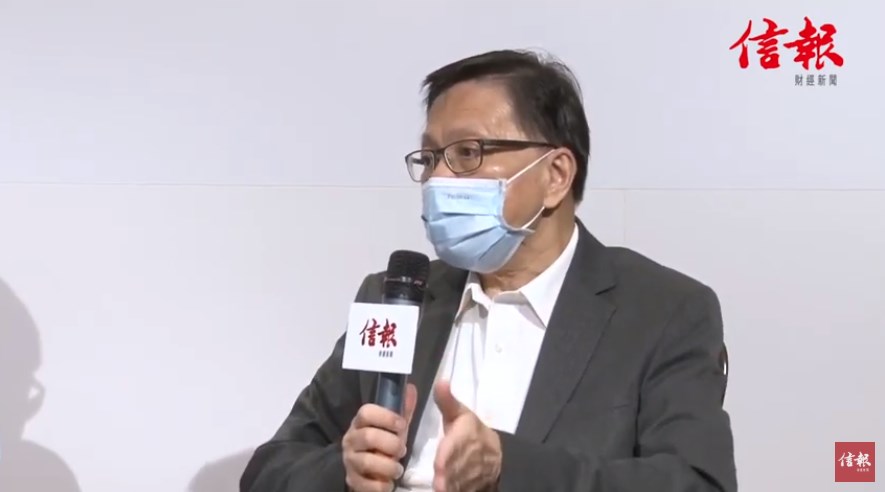Hong Kong’s leader Carrie Lam has rejected fears that a sweeping new national security law might be “weaponised,” saying the city needs such “righteous” legislation to protect people’s safety.
The Chief Executive was asked by reporters to comment on whether the Beijing-imposed law takes precedence over press freedom in Hong Kong, following the arrest of media mogul Jimmy Lai and the police raid on his Apple Daily newspaper last week.

Lam said international human rights and freedoms were often restricted on the grounds of safeguarding national security. But she refused to comment on Lai’s arrest and subsequent police actions since his company Next Digital had decided to seek legal action.
She said she was “startled” by claims that the government should prevent the “weaponisation” of the security law, which criminalises secession, subversion, terrorist acts and collusion with foreign forces. The legislation, she said, should be seen as a “weapon of the rule of law” which punishes offenders.
“The national security law has the functions of deterrence, punishment and prevention. Comparing the national security law to weaponisation is quite hard to understand,” Lam told reporters before the weekly Executive Council meeting.
Lam said that over the past year, the financial system had been “weaponised” to impose sanctions, while social media had been “weaponised” for the purposes of doxxing. “This is exactly why we needed this righteous national security law to handle and protect the safety of Hong Kong citizens.”
Her remarks came two days after Anthony Cheung, a former secretary for transport and housing, said at a panel discussion that the biggest risk of a national security law was whether it would be “weaponised” during application and enforcement.
“Many issues may not be within the area of national security, say general public safety or public order issues, which can be escalated to the level of national security. Then [the authorities] would face the least challenges, but this is of course a risk,” Cheung said at the event organised by the Hong Kong Economic Journal on Sunday.

The Education University of Hong Kong professor said the government had not discussed what concrete actions could be seen as violating the new law, fuelling speculation in society.
“The underlying concerns and fears [about the national security law] may be expanded indefinitely,” Cheung said.
Support HKFP | Policies & Ethics | Error/typo? | Contact Us | Newsletter | Transparency & Annual Report | Apps
Help safeguard press freedom & keep HKFP free for all readers by supporting our team
























